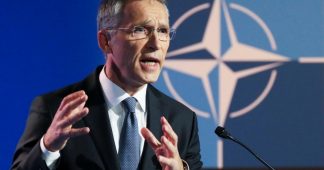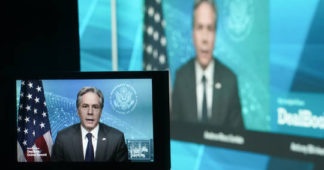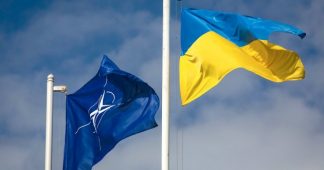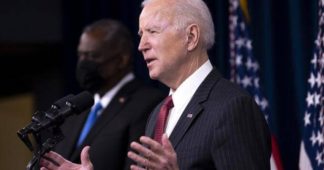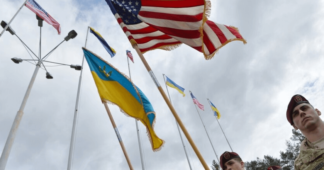Blinken, Stoltenberg unleash unprecedented diktat, ultimatum at Russia following NATO FM meeting
Below are videos of U.S. Secretary of State Antony Blinken and NATO Secretary General Jens Stoltenberg at their respective press briefings following the virtual meeting of NATO’s thirty foreign policy chiefs on January 7, preceded by the transcript of Blinken’s comments. They provide a clear indication of what to expect from the upcoming NATO-Russia Council and Biden-Putin discussions.
The upshot of both Blinken’s and Stoltenberg’s statements are that Russia has the choice of capitulating to NATO’s terms and demands regarding the ongoing war in Ukraine (and implicitly the return of Crimea) and NATO’s absorption of any former Soviet republics not already in the bloc or NATO will revert to its role as the military alliance it has been for 73 years: it will employ the military expedient against Russia. As it has not hesitated to do in Europe, Asia and Africa in the past twenty-three years.
During Blinken’s initial presentation he mentioned Russia or used the words Russian, Moscow and Kremlin no less than 43 times. During answers to reporters he used Russia/n an additional 26 times. He used the pronouns it and its in reference to Russia perhaps dozens of times. Incidentally, on Christmas Day as it’s marked in Russia,
His tone in articulating – practically spitting out – the words was uniformly accusatory, confrontational and bellicose.
Part of his writ of indictment was:
-It’s Russia that invaded Ukraine nearly eight years ago.
-It’s Russia that is the military occupier of part of Ukraine, in Crimea.
-It’s Russia that, to this day, is fueling a war in eastern Ukraine.
-It’s Russia that has failed to implement any of its Minsk commitments, indeed is actively violating many of them, and refuses to acknowledge it’s a party to the conflict.
-It’s Russia that’s taken aim repeatedly at Ukraine’s democracy.
-And it’s Russia that’s sending troops to Ukraine’s border, once again.
He also denounced Russia for claiming that NATO, which has twelve members and partners bordering Russia and troops, armored vehicles, warplanes, warplanes, anti-ballistic missiles, air bases, cyber warfare centers and other assets in those nations and off their coasts, in any manner threatens Russian security interests – “NATO is a defensive Alliance” – claiming the reverse of the fact, that Russia endangers the ostensibly peace-loving North Atlantic Treaty Organization with its combined military spending of over a trillion dollars a year.
His claims of NATO being something other than – in fact the reverse of – what it is even took on a retroactive character in offering the revisionist assertion that after the end of the Cold War: “NATO never promised not to admit new members. Secretary of State James Baker said the same thing.” In fact it has done so, admitting fourteen members since 1999, all east of Germany (the pledge not to expand NATO one inch to the east was made at the time of German reunification in 1989), all former members of the Warsaw Pact or in two cases of the former Yugoslavia.
In what should strike closer to home for most people reading this, Blinken included among Russia’s assorted casus belli – because to him and NATO that is precisely what they are or as required can be construed to be – “malign social media operations, the use of overt and covert online proxy media outlets, the infection of disinformation into TV and radio programming, hosting conferences designed to influence attendees….” That list and what it implies would effectively cover any comments or activities critical of NATO.
To demonstrate that Washington’s and NATO’s hostility to and manifest readiness to confront Russia are not limited to Ukraine, or to Europe as a whole, his final words, in response to a question on the current Kazakh crisis, were: “And what’s happening in there is different from what’s happening on Ukraine’s borders. Having said that, I think one lesson in recent history is that once Russians are in your house, it’s sometimes very difficult to get them to leave.”
One could with far more justification say that of the nation Blinken represents and of the military alliance it dominates.
Transcript of Blinken’s press conference
Published at antibellum679354512.wordpress.com
We remind our readers that publication of articles on our site does not mean that we agree with what is written. Our policy is to publish anything which we consider of interest, so as to assist our readers in forming their opinions. Sometimes we even publish articles with which we totally disagree, since we believe it is important for our readers to be informed on as wide a spectrum of views as possible.

